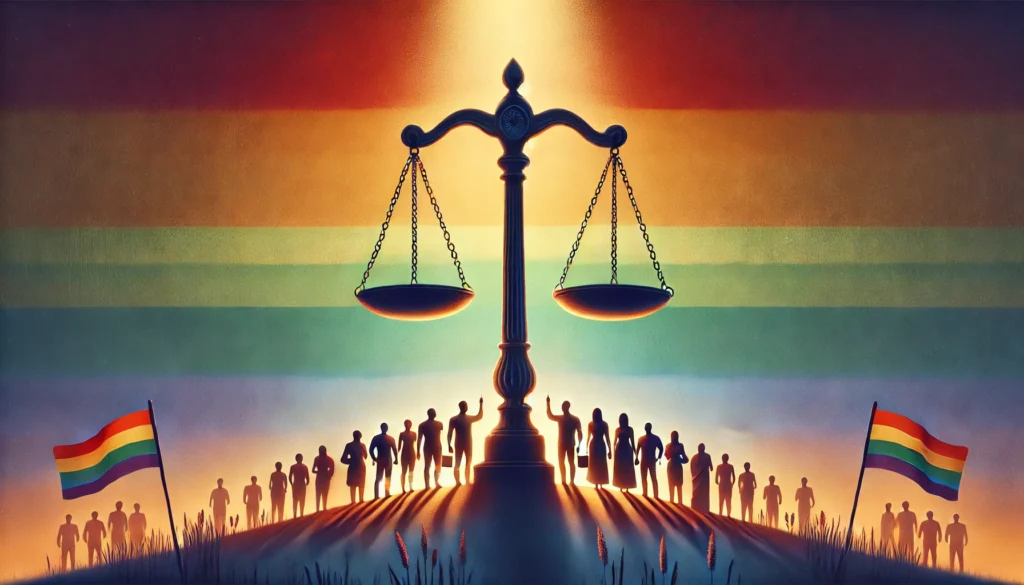Published On: 22nd March, 2024
Authored By: Prashant Indoriya
Prestige Institute of Management and Research, Gwalior
Citation: Writ Petition (Civil) No. 128 of 2019
In January 2019, both houses of the Indian Parliament passed the 103rd Constitutional Amendment Bill, which received the President’s assent on January 12th. This Amendment granted a 10% quota in higher educational institutions and government jobs for individuals belonging to the economically underprivileged sections of society. It came into effect on January 14th and has since been a subject of debate due to questions raised about its constitutional validity.
Several petitions were filed in court challenging the amendment’s validity, arguing that it violates the basic structure of the Constitution. The amendment added clauses to Articles 15 and 16, allowing the state to provide EWS reservations in addition to existing reservations for Scheduled Castes (SCs), Scheduled Tribes (STs), and Other Backward Classes (OBCs).
The amendment also required government and private (aided and unaided) institutions to include this reservation, except for minority institutions exempted under Article 30(1). This reservation is enabling rather than mandatory, meaning institutions are not required to provide the 10% EWS quota but the state can make arrangements for it.
The Supreme Court recently upheld the 10% EWS quota, stating that it does not violate the Constitution’s basic structure and that the 50% ceiling on reservations, established in the Indra Sawhney case, is not inflexible.
Issues Raised:
– Is the Amendment constitutionally valid, or does it violate the basic structure of the Constitution?
– Is excluding SCs, STs, OBCs, and Socially and Economically Backward Classes (SEBCs) from the EWS reservation a violation of Article 14 (Right to Equality)?
– Does the Amendment violate the 50% ceiling on reservations established in the Indra Sawhney case?
– Can reservation be provided solely on economic criteria?
– Can reservations be provided in institutions that do not receive government aid or finance?
Petitioners’ Contentions:
- The 103rd Amendment aims to expand reservations to individuals who have never experienced marginalization or discrimination, going against the reservation policy’s basic foundation.
- The Indra Sawhney judgment and Mandal Commission report established that economic factors alone cannot be the basis for granting reservations.
- In the same judgment, it was held that the 50% ceiling limit should not be changed.
- The 103rd amendment goes against the spirit and goal of reservation as propounded by B.R. Ambedkar, as even if backward classes reach parity with forward classes, poverty would still exist, leading to perpetual reservations.
- The 103rd Amendment Act only gives reservation to the general caste, excluding SCs, STs, and SEBCs, which violates Article 14 (Right to Equality) and the basic structure of the Indian Constitution.
- The EWS reservation is against the preambular vision of a caste-free society, creating a vertical reservation within a vertical reservation.
Respondents’ Arguments:
- The ethos of reservation distinguishes between classes, not castes. This amendment is based on giving special benefits to the economically backward class, advancing the reservation’s justification and the preambular vision of economic justice.
- According to the Attorney General of India, the amendment strengthens the Constitution’s fundamental principles and should be read dynamically, considering Articles 38 and 46, which impose obligations on the state to further the cause of justice and eliminate inequalities that exist in the social, political, and economic spheres.
- It is appropriate to classify people solely based on economic factors, as the Supreme Court has viewed poverty as a sign of backwardness while considering reservations.
- The 10% EWS quota does not violate the rights of SCs, STs, OBCs, or SEBCs, as it is in addition to the existing quota for underprivileged groups and does not work against their interests. SCs, STs, and non-creamy layer OBCs are excluded as they already benefit from special provisions.
- Exceeding the 50% limit can occur in exceptional situations, as the amendment advances substantive equality in response to societal demands and promotes the reservation ethos by extending its benefits to the EWS.
Judgment:
In a 3:2 majority, the Supreme Court upheld the validity of the Constitution (103rd Amendment) Act, 2019, on November 7, 2022, dismissing the petitions challenging the Amendment Act. The majority opinion stated that providing reservations for the economically weaker sections based solely on economic disadvantage does not impinge upon the rights of socially and educationally backward classes, nor does it contravene the fundamental tenets (basic structure) of the Constitution.
Justice Bela M. Trivedi emphasized the Amendment Bill’s Statement of Objects and Reasons, highlighting that a large chunk of the EWS has been excluded from quality education due to economic incapacity. These persons are ineligible for reservations and lack the financial capacity for the best education, justifying the amendment.
Justice J.B. Pardiwala stressed the need to revise the criteria for reservations under the Constitution, emphasizing that reservations were not meant to become vested interests but to represent the marginalized and ultimately reach an egalitarian society.
The judgment reminds us that reservations under the Constitution are not meant to be indefinite, as the reservations under Articles 15 and 16 were intended to bring about social harmony within 10 years of the Constitution’s enactment, but have continued for over seven decades.
References:
1.https://corpbiz.io/learning/janhit-abhiyan-v-union-of-india/
2.https://lawbhoomi.com/janhit-abhiyan-vs-union-of-india-2022-case-comment/
https://legalvidhiya.com/janhit-abhiyan-vs-union-of-india/?amp=1
3.https://legalvidhiya.com/janhit-abhiyan-vs-union-of-india-on-7-november-2022/?amp=1




